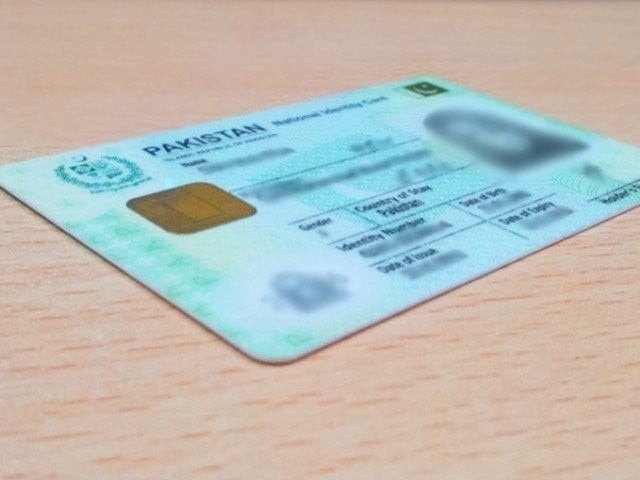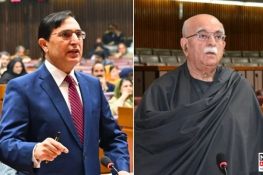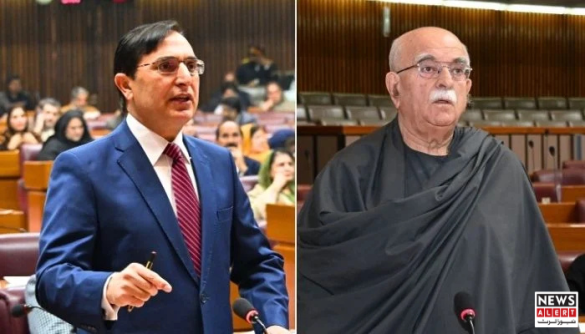Court Action Against NADRA Official
The Sindh High Court in Karachi has issued bailable arrest warrants against an Assistant Director of the National Database and Registration Authority (NADRA) after prolonged delays in issuing identity cards to the children of a local cleric.
The petitioner, Maulana Abdul Bashar, father of 11 children, told the court that despite repeated visits to NADRA offices since 2004, his children had not been issued their Computerised National Identity Cards (CNICs). He said the lack of documentation had created severe problems, particularly in their access to education.
Justice Muhammad Iqbal Kalhoro expressed strong displeasure at the conduct of NADRA officials, questioning why the documents were withheld if all requirements had already been met. The court pointed out that since NADRA had already issued birth certificates for the children, there was no valid justification for denying them identity cards.
Following this, the court issued arrest warrants for NADRA’s Assistant Director of Verification and adjourned the case for one week.
A Long Struggle for Recognition
In his petition, Abdul Bashar explained that his family had been struggling with bureaucratic hurdles for almost two decades. He said he had submitted the necessary paperwork on several occasions and visited NADRA branches repeatedly, yet his children’s cases remained unresolved.
Without CNICs, his children cannot officially enroll in schools, register for examinations, or access scholarships. “Their education has been severely damaged,” the petitioner told the court. He added that the lack of identity documents also affects access to basic services, including healthcare and mobility.
NADRA’s Role and Public Frustration
NADRA is Pakistan’s central authority responsible for registering citizens and issuing CNICs. In recent years, it has also introduced digital payment solutions for citizen services link: NADRA introduces digital payment system for citizens’ services, aiming to reduce delays and improve accessibility. The card is essential for nearly all aspects of life in the country, including opening bank accounts, purchasing property, applying for jobs, or even obtaining a SIM card.
Despite its critical role, the authority has often faced criticism for inefficiency, long delays, and alleged discrimination. Many citizens, especially from marginalized or rural communities, complain that they face obstacles in acquiring identity documents. In some cases, applicants have been required to prove their Pakistani nationality through multiple generations, creating additional burdens.
According to official statistics, NADRA has registered more than 120 million citizens, but millions remain unregistered or face difficulties in obtaining documentation. Civil society groups argue that this exclusion contributes to social inequality, limiting access to education, healthcare, and political participation.
Court’s Stance on Bureaucratic Delays
Justice Kalhoro’s remarks highlight growing judicial impatience with NADRA’s practices. During the hearing, the judge asked officials why delays persisted when applicants had already fulfilled the necessary criteria. “If the birth certificates have been issued, then what is the justification for withholding identity cards?” he questioned.
The court emphasized that denying citizens their right to identification not only violates administrative responsibility but also disrupts fundamental rights, including access to education. Legal experts note that Pakistan’s Constitution guarantees equality before the law and the right to education, both of which are compromised in cases like Abdul Bashar’s.
Wider Implications
This case sheds light on a broader issue affecting thousands of families across Pakistan. Delays in issuing CNICs prevent children from attending schools, block young adults from applying for jobs, and restrict families from receiving government assistance.
For Abdul Bashar’s family, the delay has already spanned nearly 20 years. His children, some of whom are now young adults, remain ineligible for higher education admissions and other opportunities because of the missing documents.
The court’s decision to issue arrest warrants against a NADRA official is seen as a rare but significant step. It reflects growing judicial pressure on government departments to address inefficiencies that directly impact citizens’ daily lives.
Next Steps
The Sindh High Court adjourned the hearing for one week, giving NADRA officials time to explain their position. The outcome of this case could set an important precedent for others facing similar struggles.
For Abdul Bashar and his 11 children, the hope is simple: that the documents they have sought for nearly two decades will finally be issued, allowing them to pursue education and opportunities without bureaucratic barriers.















